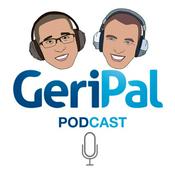Philippe Pinel remarked in 1800 that "It is an art of no little importance to administer medicines properly, but it is an art of much greater and more difficult acquisition to know when to suspend or altogether to omit them." This insight remains profoundly relevant today, especially in hospice care, where inappropriate prescribing is a common issue. Studies show that 20%–70% of hospice patients receive at least one unnecessary medication near the end of life, including drugs like antihypertensives, statins, and vitamins.
In this episode of the GeriPal Podcast, we tackle the pressing topic of deprescribing at the end of life with expert guests Jennifer Tjia, Jon Furuno, and Simon Mooijaart. The conversation focuses on identifying medications that should almost always be discontinued—such as statins, osteoporosis meds, finasteride, and vitamins, which offer minimal benefit for patients with limited life expectancy. We also delve into more nuanced cases, such as antithrombotics, which present complex decisions that challenge clinicians, particularly when prognosis spans the many weeks to months range.
Finally, we explore practical strategies for engaging patients and families in deprescribing conversations. Our guests highlight tools such as the FRAME mnemonic (Focus on the goals of care, Review current medications, Assess each medication's risk/benefit, Minimize the medication burden, and Evaluate regularly) and the Goal Concurrent Prescribing tool, which helps ensure medication decisions align with patients' values and end-of-life priorities.
By: Eric Widera
Other resources discussed in the podcast
Prevalence and Factors Associated With Receiving a Prescription for Antithrombotic Therapy on Hospice Admission," JAGS. 2025
Discontinuation of Anticoagulants and Occurrence of Bleeding and Thromboembolic Events in Vitamin K Antagonist Users with a Life-limiting Disease. 2025
Effects of the discontinuation of antihypertensive treatment on neuropsychiatric symptoms and quality of life in nursing home residents with dementia (DANTON): a multicentre, open-label, blinded-outcome, randomised controlled trial. 2024
Perspectives on deprescribing in palliative care. Expert Review of Clinical Pharmacology. 2023
Developing a decision support tool for the continuation or deprescribing of antithrombotic therapy in patients receiving end-of-life care: Results of a European Delphi study. Thrombosis Research. 2025
Human-Centered Design Development and Acceptability Testing of a Goal Concordant Prescribing Program in Hospice. JPM 2025
Reduction of Antihypertensive Treatment in Nursing Home Residents. NEJM 2025



